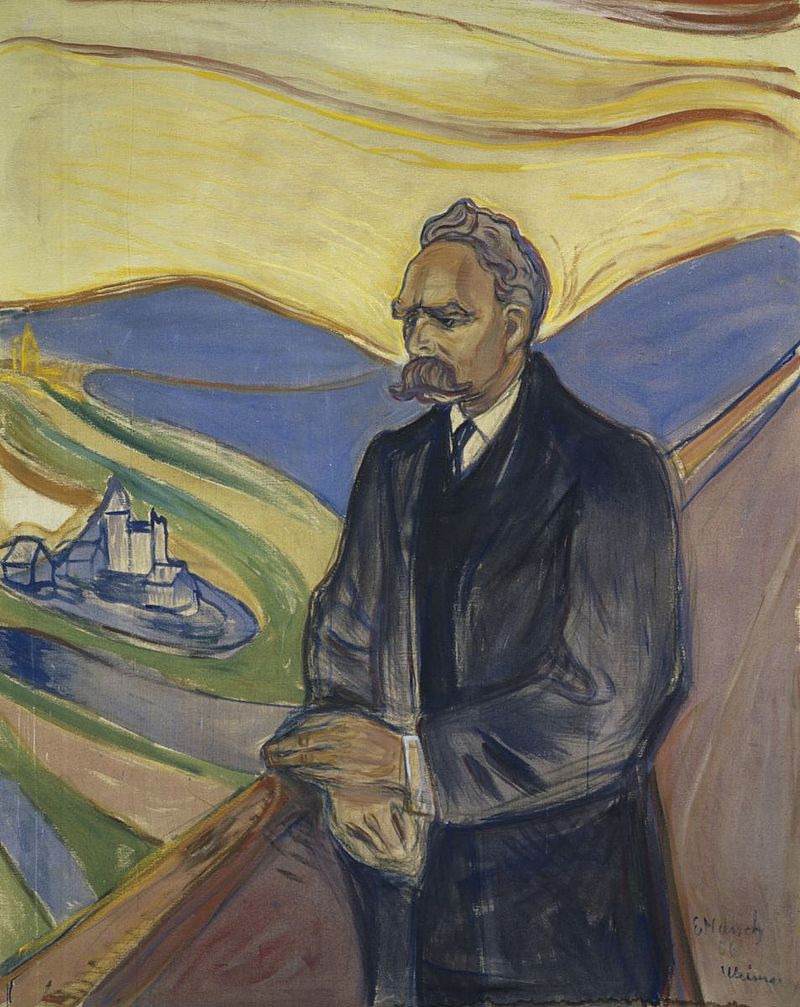“My formula for greatness in a human being is amor fati: that one wants nothing to be different, not forward, not backward, not in all eternity. Not merely bear what is necessary, still less conceal it—all idealism is mendacity in the face of what is necessary—but love it.”
Friedrich Nietzsche, 1888 (1908 published), Ecce Homo, Why I Am So Clever, 10

19th century German philosopher Friedrich Nietzsche wrote of ‘amor fati’, a latin phrase which translates to ‘love of fate’.
Amor fati is an idea very closely related to the Stoic school of thought, and its origins have been linked to such Stoic philosophers as Epictetus and Marcus Aurelius, who often spoke of a similar concept.
“Do not strive for things occurring to occur as you wish, but wish the things occurring as they occur, and you will flow well.”
Epictetus, The Enchiridion by Arrian, 8, early 2nd Century.
Amor fati requires an acceptance of fate.
Fate can be thought of as that which we cannot control. Nietzsche thought that if we could accept things out of our control and not agonize over them, life would be better. It wasn’t just an acceptance of things out of our control that he spoke of however, but an accepting of everything, just how it is. To accept our past, including all our own personal mistakes and failures, and to do the same with what may come in the future. To constantly question and punish ourselves over past mistakes, shortcomings and inadequacies can send us into delirium. Amor fati is an answer to this self-afflicted torture. We should believe that things have been, are currently, and will be, just as they should be, in all aspects.

(‘The Norns in Norse mythology are female beings who rule the destiny of gods and men. They roughly correspond to other controllers of humans’ destiny, such as the Fates, elsewhere in European mythology.’ Source-Wikipedia)
Amor fati is in the least an acceptance of fate, and at the most, a love of it.
Nietzsche thought that not only should we accept all the horrors and chaos in life but we should love them. They are an integral part of our story. All the difficulties in life are intertwined with all the good and one cannot be without the other. The tragedies of fate and the missteps of being are one with the glories of grace and the wisdom of humanity. We need to take the good with the bad quite literally. Not only accept, but love the full picture of reality as it is.
This wasn’t to say that Nietzsche was advocating for a fatalistic approach to life.
He wasn’t suggesting we live completely passively as victims to fate. One of Nietzsche’s central concepts was ‘Wille zur Macht’, or the ‘Will to Power’ which is in direct contradiction to a helpless mentality. What he may have been advising instead, is that we have the wisdom to know when we need to fight and overcome, and when we need to accept and embrace the reality we find ourselves in. To be both drivers of change and gracious participants in fate.
“I want to learn more and more to see as beautiful what is necessary in things; then I shall be one of those who makes things beautiful. Amor fati: let that be my love henceforth! I do not want to wage war against what is ugly. I do not want to accuse; I do not even want to accuse those who accuse. Looking away shall be my only negation. And all in all and on the whole: someday I wish to be only a Yes-sayer.”
Friedrich Nietzsche, 1882, The Gay Science, 276





the quotes was very deep..
just like addressed to me..
I’m glad you enjoyed them!
good information, the spirit is always admin!. continue to develop articles like this